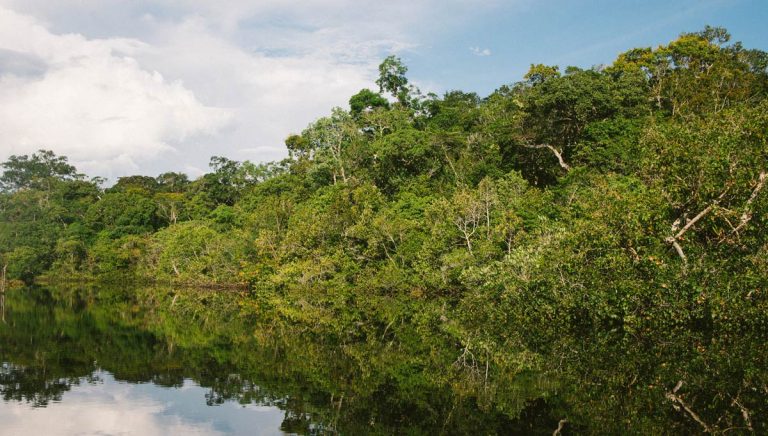You can now buy parts of the Amazon rainforest on Facebook Marketplace
Earlier this year, a report for Environment magazine concluded that by 2064, the Amazon rainforest would collapse and become a “dry shrubby plain”, causing dangerous water shortages, catastrophic biodiversity losses and more. While deforestation, unsustainable development, cattle ranching and soybean production remain the major culprits behind this rapid destruction, a recent investigation led by BBC Brasil adds “illegal land deals leveraging Big Tech” to the list.
The investigation revealed parts of Brazil’s Amazon rainforest being traded via Facebook’s classified ads service with listings as large as 1,000 football pitches. These plots can be found on Facebook Marketplace by typing in Portugese words for search terms like ‘forest’, ‘native jungle’ and ‘timber’ and picking one of the Amazonian states as the location. Some of these listings even feature satellite images and GPS co-ordinates.
Land traded includes those protected as national forests and reserves for Brazil’s indigenous communities. A common strategy used by invaders here is to first illegally deforest the plot, then plead with politicians to abolish its protected status on the basis that it no longer serves its original purpose. Once the protected status is lost, these land grabbers can then buy the plots from the government, thereby legalising their claims.
Fabricio Guimarães, a seller secretly filmed by BBC, admitted to having cleared a patch of rainforest to list it as farmland for a price of £25,000 on the platform. “There’s no risk of an inspection by state agents here,” he told the undercover agents, viewing the rainforest as an investment opportunity.
BBC further reports an influx of these ads from Rondônia, the most deforested state in Brazil’s rainforest region. With Ricardo Salles, Brazil’s environment minister, himself admitting to the lack of law enforcements due to the pandemic, indigenous communities within Rondônia have been forced to set up patrol teams to catch these invaders themselves.
However, plots from inside the Uru Eu Wau Wau, an indigenous reserve home to more than 200 people, were seen listed on Facebook for about £16,400 in local currency. “This is a lack of respect,” said Bitaté, leader of the community. “I don’t know these people. I think their objective is to deforest the indigenous land, to deforest what is standing. To deforest our lives, you could say.” He urged the authorities to intervene and Facebook to take action of its own.
When the broadcasting service reached out to Facebook with its findings, the tech giant said that it was “ready to work with local authorities,” admitting that it would not take action of its own to halt the trade in the meantime. Facebook further claims that its efforts in deducing illegal sales would be too complex a task to carry out and should be left to the local judiciary and authorities. However, indigenous groups and environmental campaigners do not believe in the possibility of government intervention.
Though Salles quoted the government’s initiative to control illegal deforestation and fires through what is known as operation Verde Brasil 2, federal prosecutor Raphael Bevilaquia, based in Rondônia said that the situation has worsened under the current government. “The situation is really desperate. The executive power is playing against us. It’s disheartening,” he told the BBC. Facebook does not seem to address the issue seriously enough to warrant halting all Marketplace land sales across the rainforest either.
The Amazon rainforest makes up nearly a third of all tropical rainforests left on Earth. Attempts to stop its destruction have fallen short despite the urgency of the matter. Although solutions like demarcation, a federal process wherein indigenous territories are identified and studied to mark off boundaries, are proposed to counter the issue, all efforts seem to be in vain as we sit counting down the next 43 years left on the charts.





